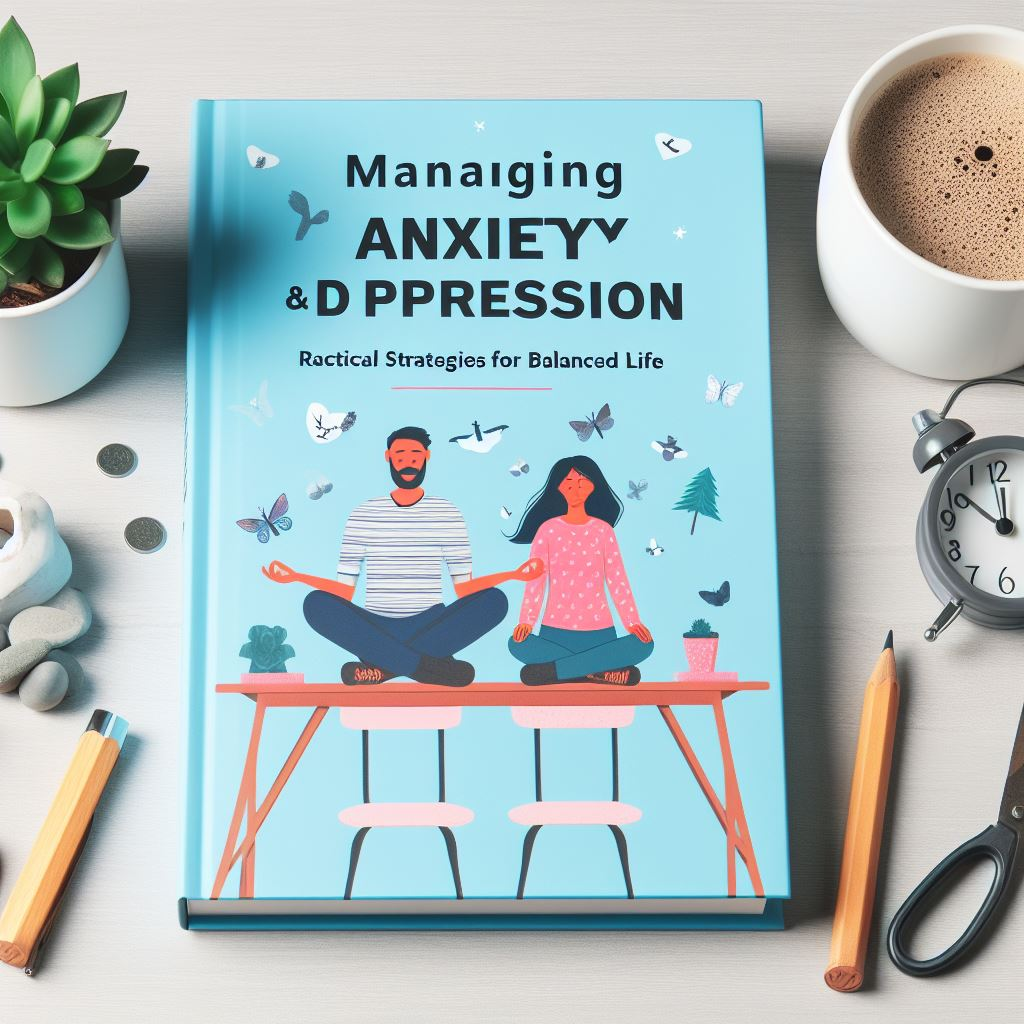Managing Anxiety and
Depression: Practical Strategies for a Balanced Life"

So, how can one avoid falling into the depths of
depression or anxiety? The answer to the first question lies in the unrealistic
expectations we set for ourselves. We often chase unattainable goals, and when
we struggle to overcome the associated challenges, anxiety and depression can
take hold. The answer to the second question is rooted in our tendency to
prioritize others' approval over our own well-being. For instance, the desire
to impress a boss or seek external validation can lead to stress and anxiety.
To overcome anxiety, it is essential to learn how to coexist with it. Anxiety is not a constant state but rather comes and goes. Developing patience is key in understanding that meaningful accomplishments take time. Practices such as meditation and relaxation techniques can provide relief from anxiety and depression. Additionally, it is crucial to open up and talk about your feelings with someone you trust. Patience and maintaining a clear state of mind are vital components of liberating oneself from these emotional burdens.
In the pursuit of mental well-being, it is worth
remembering that a little common sense can often be more valuable than a wealth
of knowledge.
Comparing 'Spirit' in Spiritualism and
Alcohol: A Look at the Differences"
The term "Spiritualism" derives its roots
from the concept of the spirit, often associated with the soul. The word
'spirit' can be quite contentious, as some individuals question the very
existence of this intangible entity. Those with a materialistic mindset seek
tangible proof of a spirit's existence or demand that if it's a virtual entity,
it should withstand rigorous scientific testing to gain recognition.
Conversely, proponents of the existence of the spirit argue that faith is
necessary to experience it and that subjecting it to scientific scrutiny is
unnecessary.
Interestingly, the word 'spirit' is also employed
in a different context, referring to alcohol or liquor. Even in this context,
it can be a divisive term, with many people considering alcohol consumption as
an unhealthy habit that may lead to addiction and health problems.
Consequently, many individuals distance themselves from alcohol and advise
others to do the same.
Despite the disparities, there is a common thread
in both interpretations of 'spirit.' In both cases, they have the power to
elevate individuals from their usual state of mind to a heightened state of
being or living.
It could be argued that 'spirit' elevates one's level of consciousness, irrespective of the context. The behavior of a spirited person bears similarities in both spiritualism and alcoholism, and numerous songs and works of literature have explored this theme.
However, a subtle but significant distinction
exists. Alcohol is externally consumed, entering the body from an external
source, while the 'spirit' in spiritualism is believed to be evoked from
within, an internal transformation. In one case, it's an inner metamorphosis,
while in the other, it's an external change leading to a seemingly similar
state. This contrast highlights the profound divergence between the two uses of
the seemingly identical word in different contexts.
IF HE EXIST
I drive joy
there was a doctor in Benaras who spent 7 minutes in the morning and evening
for mediation on God. Knowing this, his colleagues and friends laughed at him.
One day they argued that he was wasting 7 precious minutes on something, which
he had been misled into believing. The doctor replied, “Well, if God does not
exist, I agree that I am wasting 7 minutes a day. But, if He exists? I am
afraid you are wasting your entire lifetime. I prefer to waste 7 minutes rather
than a lifetime. Why should you grudge me the 7minutes joy that I derive 4m.-
ILLUSTRATED REVIEW :7th heaven moment in laxmi puja 7 color rainbow found in London in epl mc
Ginn no 7 scored a goal











No comments:
Post a Comment